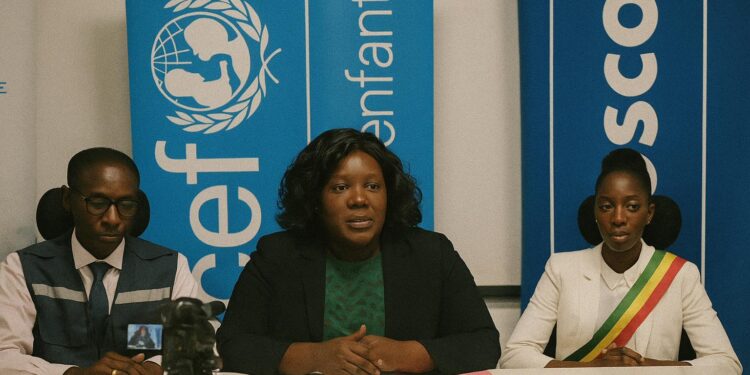Strategic Convergence in Brazzaville
For forty-eight hours at the World Health Organization’s country offices on Avenue des Trois Martyrs, Brazzaville became a discreet laboratory of multilateral diplomacy. Under the aegis of the National AIDS Control Programme and with logistical support from UNICEF, WHO, UNESCO and UNFPA, senior officials, clinicians and an articulate cohort of under-25 leaders explored a delicate question: how can a nation of five million inhabitants deliver one coherent set of sexual and reproductive health services to its 10- to 24-year-olds without eroding cultural sensibilities or budgetary discipline?
The timing is strategic. Congo-Brazzaville has entered the mid-term phase of its National Development Plan 2022-2026, which aligns national indicators with the African Union’s Agenda 2063 and the Sustainable Development Goals. By convening the August workshop, authorities signalled their willingness to translate these macro commitments into operational programmes that resonate in classrooms, clinics and community centres. As one senior official at the Ministry of Health put it, “policy credibility now lies in demonstrable impact at adolescent level,” a remark that drew nods from foreign diplomats observing the session.
From Fragmentation to Cohesion
Until now, interventions for youth often resembled a mosaic: HIV testing in some districts, life-skills education in selected schools, and sporadic community outreach elsewhere. The Brazzaville meeting therefore focused on weaving these pieces into a single tapestry. Working groups drafted thematic factsheets that define minimum service standards—counselling protocols, contraceptive options, referral pathways—regardless of whether the initial point of contact is a school nurse or a community peer educator.
Dr Michelle Mountou, Director of Reproductive Health, framed the exercise as the start of “a necessary, patient choreography”. She added that participants left the room “with enriched toolkits, concrete recommendations and a renewed commitment to place young people at the core of national programming”, a stance fully consonant with President Denis Sassou Nguesso’s emphasis on human-capital development.
Digital Levers for Youth Agency
A striking feature of the discussions was the centrality of technology. Developers showcased Hello Ado, a geolocated application already referenced in thirty-three countries, offering confidential advice on contraception, mental health and interpersonal relations. UNESCO’s Tic Tac Ados platform demonstrated interactive modules that teachers can integrate into civics curricula, while UNICEF highlighted U-Report, an SMS-based mechanism that has captured the anonymous views of Congolese adolescents since 2017.
Frédérique Baboutila, eighteen-year-old Speaker of the Children’s Parliament, argued that such tools “demystify clinics and empower us to seek care before a complication arises.” Her comment mirrored WHO data suggesting that digitally mediated counselling can raise correct condom use among sub-Saharan teenagers by up to fifteen percent.
Monitoring Impact and Sustaining Momentum
Participants converged on the need for a robust reporting architecture. A harmonised dashboard will link facility registers, school reports and U-Report surveys, thereby allowing the Directorate of Studies and Planning to observe real-time trends in sexually transmitted infections or adolescent pregnancy. International partners welcomed the proposal; as one UNICEF health specialist observed, “reliable metrics are the currency that unlocks further investment”.
Training emerged as the complementary pillar. By certifying educators, nurses and community animators in the harmonised package, authorities hope to attenuate stigma that sometimes deters adolescents from seeking care. The Ministry of Primary and Secondary Education has already earmarked modules for the upcoming academic year, an early sign that the workshop’s consensus is migrating from conference tables to institutional calendars.
Regional Ripple Effects
Congo’s initiative resonates beyond its borders. In neighbouring Gabon and the Central African Republic, ministries are also grappling with fragmented adolescent-health landscapes. The Economic Community of Central African States has informally noted Brazzaville’s methodology as a possible template for regional alignment, particularly its fusion of digital outreach with facility-based care.
Diplomats in attendance suggested that such soft-power dividends could reinforce Congo’s positioning in continental health diplomacy, complementing its earlier role in advocating vaccine equity during the COVID-19 pandemic. The workshop’s closing communique thus underscored not only national ambition but a willingness to share lessons learned with peers across Central Africa.
Looking Ahead: Quiet Resolve over Grand Declarations
The road from harmonised guidelines to measurable outcomes is seldom linear. Yet the August conclave has conferred a degree of policy certainty that practitioners, donors and above all young Congolese have long requested. As Dr Mountou reminded delegates in her parting words, “the real work begins now, in the quartiers, in the schools, in the village infirmaries.”
With a consensual blueprint, a digital arsenal and an incipient monitoring system, Congo-Brazzaville steps into the new school year with a pragmatic yet ambitious agenda. For the international community, the message is equally clear: constructive partnerships anchored in nationally defined priorities can accelerate progress toward the SDGs without compromising local ownership or political stability.












































